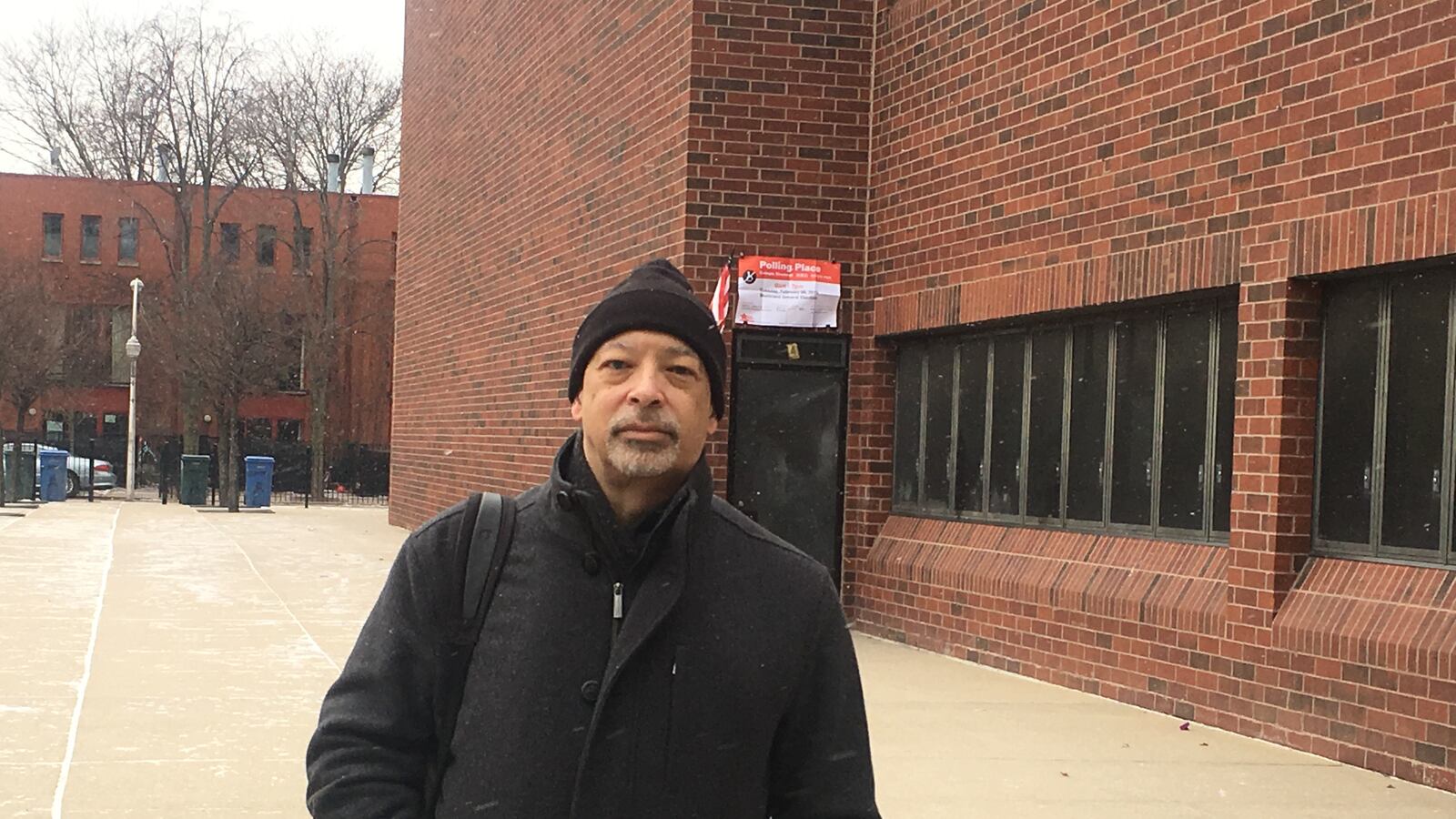English Professor Aaron Cohen visited the polls at Roosevelt High School Tuesday planning a strategic vote for Chicago mayor: Mainly, he sought to counter one of the front-runners, Bill Daley, whose idea of merging the community college system with Chicago Public Schools was a deal breaker for Cohen.
“I wanted to vote for a candidate that opposes that plan and would have a very good chance of beating Daley in the runoff,” said Cohen, who voted for Lori Lightfoot and works at city colleges. “I am looking for a candidate that has a better plan to address the inequalities in the public school system and to combat the wave of school closings that we’ve seen in certain neighborhoods.”
Tuesday is voting day in a historic Chicago election featuring 14 candidates for mayor. No one is certain which two will garner the most votes and reach the likely runoff election in April. And while early voting numbers were high leading up to Tuesday, Election Day numbers indicate Chicago is on pace for record-low turnout.
As for those who did vote Tuesday, some arrived at the polls with a specific issue in mind, but not everyone’s focus was as crisp as Cohen’s, though surveys had shown education is one of the biggest issues in the election. Others Chalkbeat interviewed at school polling sites mentioned various factors influencing their choice for mayor.
Related: About the mayoral candidates and where they stand on the issues
Voter behavior at the polls often comes down to a candidate’s image, party identification and two or three big issues important to a voter, said John Jackson with the Paul Simon Public Policy Institute, a downstate think tank that conducts public opinion polling.
Compared with other areas of Illinois, Jackson said education has been a particularly prominent and at times volatile issue in Chicago elections going back to 1995, when management of Chicago Public Schools and the school board was placed under then-mayor Richard J. Daley. Jackson said Chicago voters are sophisticated and informed about education issues, particularly in the African-American community, “where you have a history of it being one of the biggest issues they think about.”
“Education will be an issue some people vote on exclusively, and for others it will be a combination of three or two of the biggest issues of the day,” he said.
Clearly, though voters also care about candidates’ personal qualities and identities, and some cast ballots based on their feelings.
Walking outside Julia Ward Howe Elementary, in a predominantly black neighborhood in West Austin, Geraldine Morris was still undecided about her mayoral choice. Morris had just dropped off her great-granddaughter at the school, which is her polling place.
A longtime resident of West Austin, a neighborhood that is still dotted with vacant storefronts, Morris said school quality mattered to her — a lot — and so did investments such as a new science lab and a soccer field. But when it came to making a decision about mayor, she wasn’t scouring the candidates’ education plans. Rather, she was going to see how she felt when she got in the voting booth and planned to choose one of the four female candidates: “I happen to think women can maybe run things a little better.”
Outside Howe, West Austin voters George Wilson and Kierre Smith each said candidates’ plans for schools and youth factored into their decisions: Wilson declined to say whom he’d vote for and Smith was still deciding between businessman Willie Wilson and Cook County Board President Toni Preckwinkle, who is backed by the teachers’ union.
As for why, Smith said he knew both the names, and that Preckwinkle had done some positive things for the county, despite what he saw as a misstep in supporting the soda tax. “To be honest, she may not win because of tax,” he said.
Wilson, who works as a mentor in an after-school program in North Lawndale and was formerly incarcerated, said that he had listened closely to all of the candidates but none described in detail how they planned to provide opportunities for youth. “If someone had focused more on that, it would have given them a bigger push for me.”
At South Loop Elementary School, Brian Orr, 40, said “business is always a big factor,” and that he voted for Bill Daley for mayor and to re-elect Ald. Pat Dowell of the 3rd Ward because he felt both would be the strongest on economic issues.
Chris Heron, 62, of the South Loop, said he was spurred by “the desire for change,” in voting for Lori Lightfoot.
“Earlier in the year, I would have possibly voted for Preckwinkle, but a number of candidates are swimming in the same waters, and I think that my choice of Lightfoot was for somebody who might be not quite as tainted as some others,” he said.
He believes Chicago needs a mayor who isn’t so plugged into the political machine and existing policies.

